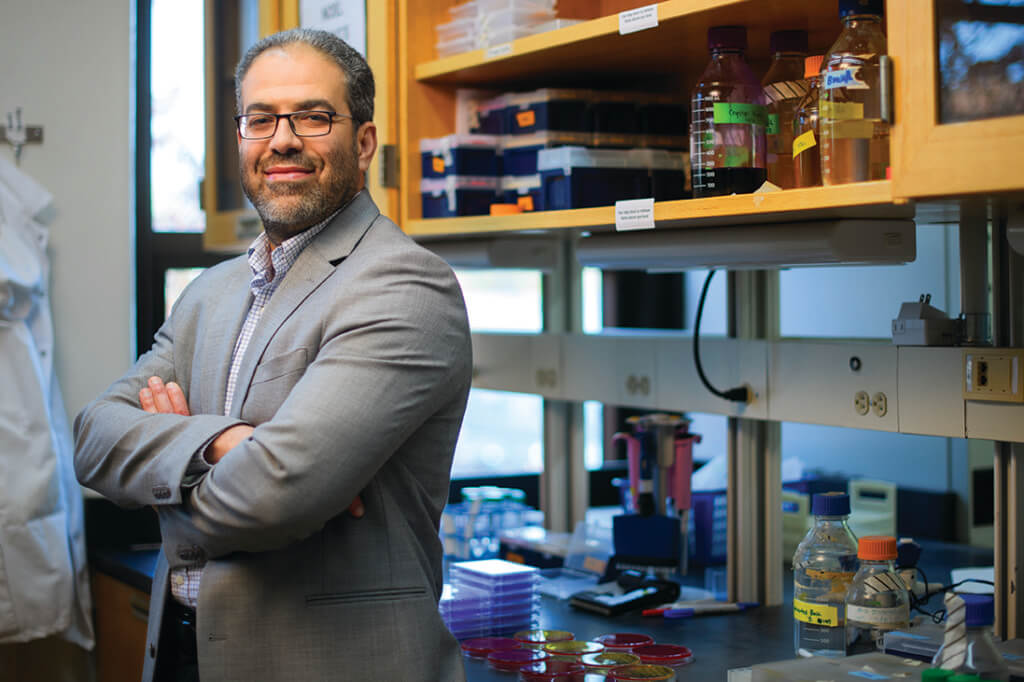
Methicillin-resistant Staphylococcus aureus (MRSA), a bacterium that causes infection in various parts of the body, is often called a “superbug” thanks to its ability to dodge many common antibiotics. Researchers at Purdue University and Boston University have discovered that exposing the bug to blue light can render it defenseless against antiseptics as mild as hydrogen peroxide.
Although most MRSA infections are not serious, some can be life-threatening, sometimes resulting in amputation of the infected appendage. Rather than rolling the dice with a multi-drug combination or wasting precious time trying to determine which medicine to prescribe, doctors could soon use a new method for disarming the superbugs: light therapy. The research findings were published in the journal Advanced Science.
“This new tool can treat any superficial wound infected with MRSA, which are typically very difficult to treat,” said Dr. Mohamed Seleem, professor of microbiology in the Department of Comparative Pathobiology. “The device itself is very small and easy to use. We’re hoping that in the next few years, anyone could carry it around in their purse.”
Described in a Purdue news release issued Tuesday, April 2, the research already has garnered significant media attention, being covered in numerous media outlets including the BBC. Dr. Seleem was interviewed on the BBC’s program called The Newsroom. The interview is about 11 minutes and 45 seconds into the program.
Some bacteria, including certain strains of staph, produce pigments. These pigments are associated with the organism’s ability to damage the host, and if you know how to reduce the pigment, then, you might be able to reduce the organism’s activity in the body. This practice is known as photobleaching.
“When you bleach something in the washing machine, you’re extracting the color using chemicals. What we’re doing here is similar, but we’re using blue light,” said Dr. Seleem, who researches antimicrobial resistance and infectious disease.
After achieving promising results in vitro, the researchers exposed mice with MRSA-infected wounds to different wavelengths of light. The infections responded especially well to light in the blue region, and combined with a low-concentration hydrogen peroxide, were reduced significantly.
The technology is patented through Purdue’s Office of Technology Commercialization. Dr. Ji-Xin Cheng, a professor of biomedical engineering at Boston University, is working to arrange clinical trials through BU.
The research was supported by the W.M. Keck Foundation.
The work aligns with Purdue’s Giant Leaps celebration, acknowledging the University’s global advancements made in health, longevity, and quality of life as part of Purdue’s 150th anniversary. This is one of the four themes of the yearlong celebration’s Ideas Festival, designed to showcase Purdue as an intellectual center solving real-world issues.
Click here to learn more about the Seleem Research Group.
Click here to view a Purdue news release about the research.
